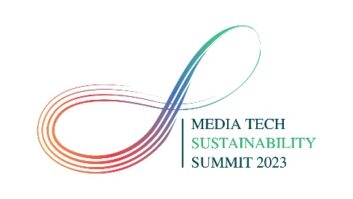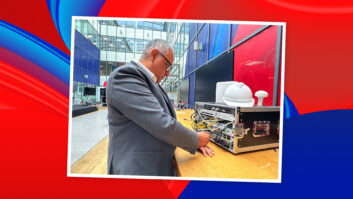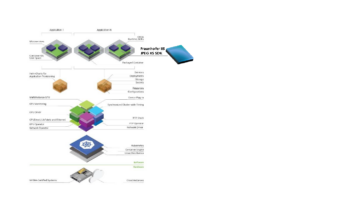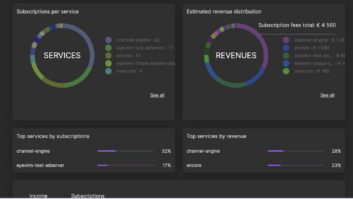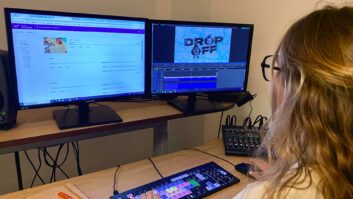The theme of this year’s International Women’s Day campaign is #BreakTheBias. It’s almost tailor made for the media technology industry, where women continue to fight to get their voices heard across all aspects of the sector.
We do have cause for celebration though, there are some incredible women working in media technology, and organisations such as Rise are helping them get their voices heard. “Gender balance across technology industries globally remains an ongoing challenge,” says Carrie Wootten, managing director of Rise. “According to Women in Tech, only 19 per cent of the technology workforce in the UK are women, with 77 per cent of technology director roles held by men.”
Rise has been working on two initiatives to change those stats: the Rise Female Leadership Report, and Rise Up Academy. “Investment is critical – these changes do not happen organically, we have to work and collaborate together to build the change we want to see,” adds Wootten. “Please let’s use IWD2022 as another step in ensuring this happens.”
“There’s definitely still room for improvement,” adds Alexandra Meier, director, global marketing and communications, media solutions, at CGI, “particularly when it comes to increasing female representation in more technical roles, and at C-level.
“In the workplace, appointing more women at board level creates more visibility, which can be very motivating for aspiring female candidates.”
“If you can see it, you can be it!” agrees Alison Pavitt, director of sales and marketing at Pebble. “Being a supportive organisation is also key. For example, remote working as an option can be beneficial for those with commitments outside work – if not completely remote, then at least the flexibility to occasionally work from home.”
But is it that easy? As Amanda Dixon, broadcast marketing manager at MRMC explains, women are still facing issues around bias in the workplace: “In previous roles, I have come up against male colleagues who assume I don’t/won’t/can’t understand the technicalities of the solutions that are to be marketed, and either refuse to read what I have written because it ‘will need a re-write’ or out-right mock me as simply being the ‘arts department’.
“I hate to use the term ‘mansplaining’, however as broadcast happens to be a male-dominated industry I have experienced it far too frequently, in the office and at tradeshows!”
It’s an experience echoed by Jess Meredith, head of data and insights at Monterosa: “Early on in my career I asked my boss for feedback. He responded, ‘Try to lower your voice, I think people will take you more seriously if you do’. At the time I naively accepted that I would need to change to fit into the work environment and to progress my career. And I know the same is felt by many other women, and those from other marginalised and minority groups.
“If I had only known back then that there are companies that don’t want you to change who you are, and who allow you to be yourself and thrive as a result,” she adds. “I am lucky to find myself at a company where I am actively encouraged to be myself. This means all my energy can be focused on performing well and adding value to the business – which benefits both Monterosa and I.
“I feel this is a growing sentiment within the broadcast industry and whilst there is still progress to be made, especially in terms of representation, the industry has taken giant steps in the past decade to make things right. International Women’s Day gives us the opportunity to raise our voice, reflect on how far we have come as well as consider what other areas still need to be addressed.”
One of those areas is around maternity leave, says Soraya Robertson, commercial director, The Collectv. “How companies deal with this is important. I think it comes down to a cultural mindset that needs to change – we may live in a very modern world but having a family, having children, is part of the fundamentals of life. Progressive organisations embrace this and have proper mechanisms and processes in place to support women who choose to have both a family and a career.
“Some of the biggest barriers to success for women in broadcasting, particularly those in technical roles, are unconscious bias and false assumptions,” agrees Lena Cole, sound team leader, BBC Studioworks. “Is she physically strong enough? Does she have the confidence to do the job properly? She’s a girl, so she must be a production runner…’
“The issue of physical strength is the one that can be most annoying for those of us who work on the studio floor,” Cole continues. “Speaking from personal experience, thoughts of whether I’ll slow down a rig never enter my mind. I might not be able to lift the heaviest of speakers by myself, but I can be creative in how I get them in place, and I can lift everything else. Am I strong enough to boom op a long drama scene? No problem! Will I have the confidence to make sure artists and contributors use our equipment correctly? Absolutely. Am I a production runner? No, it’s not only production roles that are open to women. This is still a mindset that has yet to be fully overcome.”
Confidence is a way organisations can support and progress women in the broadcast technology industry, says Katie Coteman, VP, head of advertising and partnerships at Discovery. “There’s a lot of work to be done around proving to women across the world that each of them has a very unique set of skills that the media tech industry is in desperate need of. Senior leaders, of all genders, have a great responsibility to really emphasise the crucial role women play in building this industry.”
Coteman says women shouldn’t be afraid to speak up! “The very first step to success is always an open conversation,” she adds. “It’s important to be clear about goals and ambitions and not be afraid to share them with managers. HR/people and culture teams are also there to discuss what’s standing in a way to success. It’s important for any organisation to understand individual circumstances and build appropriate schemes that can empower its talent. Increasingly more organisations are introducing initiatives that support women in the workplace.”
So how can women in the media tech industry #BreakTheBias? Everyone has a right to have a seat at the table, states Michelle Martin, chief business development officer at Milk Visual Effects. “Our industry is working hard to give women the opportunity to be at the forefront of the creative decision-making process,” she adds. “There still needs to be more recognition, training and support for female creatives on and off the set.”
“To me #BreakTheBias means be unique, stand out, do something that’s not the norm,” adds Rosanne Tan, editor on projects such as Hawkeye, The Falcon and the Winter Soldier, and Mr Robot.
“There has been improvement but there is still a lot of work to do. I hope the industry keeps moving in the right direction. My journey to get to where I am was an unconventional one, but all the experiences and struggles I went through made me the person I am today.”

